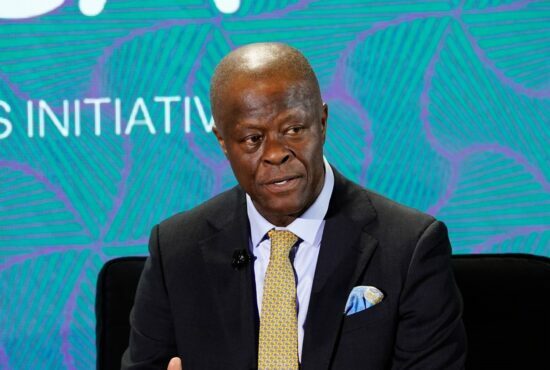The Minister of Finance and Coordinating Minister of the Economy, Mr. Wale Edun, has assured that the rights of individuals to their assets and funds in Nigeria are protected under the law.
He stated this on Wednesday at the Nigerian Economic Summit Group (NESG) National Economic Dialogue themed “Nigeria’s Economic Future: 25 Years of Democracy and Beyond,” held in Abuja.
Edun explained that the upcoming issuance of the first U.S. dollar-denominated foreign currency domestic bond in Nigeria is aimed at attracting Nigerian savings held abroad.
Rather than allowing these savings to benefit foreign economies, the initiative encourages Nigerians to invest their savings in the country’s growth.
Mr. Edun also highlighted the government’s commitment to maintaining the downward trajectory of inflation, with a particular focus on reducing food inflation to ensure greater availability of food at affordable prices in the immediate term.
He said, “A day or two ago, we launched the first U.S. dollar domestic bond. Let me clarify that the rights of individuals to their assets are protected; the rights of Nigerians to their funds in Nigeria, whether in naira, dollars, or yen, are safeguarded under the law.
ALSO READ: Kwankwaso’s nephew, others arrested for N347m drug scam
“The goal of issuing this first U.S. dollar-denominated bond in Nigeria, and perhaps in the entire subcontinent, is to attract Nigerian savings held abroad. Nigerians living and working abroad have savings.
They can see what the government, under President Tinubu, is doing to turn around the economy and improve the overall economic environment.
This makes Nigeria a place where they can safely, securely, and profitably invest some of their savings, rather than allowing those savings to benefit foreign economies.
“Similarly, there are Nigerians who legally live and work in Nigeria but keep their savings abroad.
We are now providing them with an opportunity to support their country, their government, and their future by investing some of those savings in a safe, secure, and profitable venture.
Once again, the rights of Nigerians to their assets are fully protected under the government of President Bola Ahmed Tinubu.
“Inflation, particularly food inflation, has started to decline. Overall inflation has begun to decrease. First, the rate of increase slowed, and now it stands at 33 percent, which is 1 percent lower than it was last month.
We plan to maintain this downward trend in inflation. The overall goal of the administration in the immediate term is to reduce food inflation and ensure greater availability of food at affordable prices,” Mr. Edun said.
He reiterated that Nigeria is in the midst of economic reform but acknowledged that the country had underperformed since 1981, when the GDP per capita was about $2,200.
Today, it stands at $1,600. He noted that the “game is not over” and that there is still time to recover lost ground. He pointed out that in 1975, China’s GDP per capita was $175, while Nigeria’s was $441.
Today, China’s GDP per capita is $12,000, while Nigeria’s is $1,000.
Mr. Edun praised the Nigerian Economic Summit Group for convening the meeting and emphasized the need to examine what has not been done to revamp the country’s economy, taking lessons from nations like China and other Asian countries.
The Minister of Budget and Economic Planning, Senator Abubakar Atiku Bagudu, commended the NESG for not only critiquing the government but also for collaborating to improve the country.
He said, “President Asiwaju Bola Ahmed Tinubu has been very reluctant to reflect on the past in terms of blaming anyone. However, despite the efforts of previous administrations, especially over the last 25 years, we are not where we want to be.”
Senator Bagudu explained that this is not due to anyone’s failure but rather a reflection of the reality that Nigeria has not achieved the per capita income it requires, stressing, “It’s not for lack of trying; it’s not for lack of successes.”
In his welcome remarks, the Chairman of the Nigerian Economic Summit Group, Mr. Niyi Yusuf, noted that over the past quarter-century, Nigeria has undergone significant political, social, and economic transformations.
He pointed out that Nigeria’s democracy has matured, and the economy has evolved, with strides made in various sectors such as telecommunications, agriculture, and services, reflecting collective efforts to diversify the economy and create opportunities for millions of Nigerians.
“However, as we gather here today, we must also acknowledge the challenges that have persisted, particularly those stemming from policy inconsistencies, governance deficits, and economic vulnerabilities.
“Businesses and entrepreneurs continue to suffer from the increasing cost of doing business, while citizens now suffer from the rising cost of living.
Poverty, unemployment, insecurity, and corruption are issues that continue to hinder our progress,” Mr. Yusuf further stated.
NIGERIAN TRIBUNE
